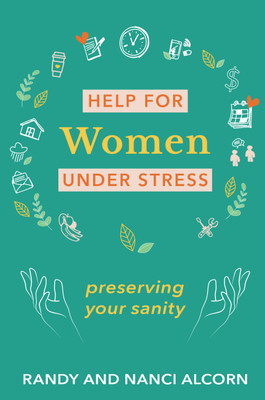Violence against women is one of the most widespread of human rights abuses. One out of every three women worldwide will be physically, sexually or otherwise abused during her lifetime. During times of war and conflict, sexual violence is used to terrorize and humiliate women and girls. Survivors often suffer further victimization by family and society. [1]
Perhaps when you read that quote, you think mostly of women in places such as parts of Africa who suffer at the hands of terrorists and guerrillas. And while we can and should intervene and care for them, we must remember that it’s not only women in faraway parts of the world who are affected by abuse, and especially domestic abuse. It’s the woman next door; the woman out jogging; the woman you see at the supermarket, the department store, and even at church.
As the father of two precious grown daughters (who are married to godly men), I can only imagine how I would feel if either of them were to be abused. How does God the Father feel about abuse toward women?
The Lord examines the righteous,
but the wicked, those who love violence,
he hates with a passion. (Psalm 11:5)
O Lord, you hear the desire of the afflicted;
you will strengthen their heart; you will incline your ear
to do justice to the fatherless and the oppressed,
so that man who is of the earth may strike terror no more. (Psalm 10:17-18)
I know that the term “abuse” is sometimes overused and applied too loosely. But other times it is exactly the right word.
First, my thanks to EPM’s Julia Stager for compiling much of the information in this blog, and also to Stephanie Anderson for help in editing. Second, below is an article based on Catherine Kroeger and Nancy Nason-Clark's book No Place for Abuse: Biblical and Practical Resources to Counteract Domestic Violence.
Give Abused Women the Help They Need
Women from every walk of life are suffering abuse throughout the world today at the hands of men they love—so much so, that domestic violence is a leading cause of death and disability among women. Often, these hurting women seek help from the people who should care the most about freeing them from their oppression: Christians. But too many Christians fail to help abused women, letting the evil of abuse continue in many homes where men proclaim faith in Christ yet ignore His commands to truly love the women close to them.
Don't ignore the abuse that women you know—even women at your church—are going through, no matter how uncomfortable it may make you. Choose to become part of the solution by answering God's call to give abused women the help they need. Here's how:
Ask God to open your eyes to prevalence and severity of the problem. Pray for the ability to notice women around you who are suffering from physical, sexual, emotional, or verbal abuse, and to feel compassion for the women and also for the hurting men who are inflicting their pain on the women they abuse. Seek to understand some of the common reasons why women struggle to break free of abusive relationships, such as fear of what men might do if they leave, hope that the men will change their abusive behavior, and the economic dependence of some women on men. Realize that domestic violence is a complex and serious problem that affects many couples—including many Christian ones—who desperately need people willing to minister to them with God's love. Keep in mind that the home is no place for abuse, and the church is no place for silence, so don't turn away whenever you encounter the reality of abuse taking place in the lives of women you know.
Increase awareness in your church. Use means such as sermon illustrations, information packets, posters, and training materials to inform your congregation about domestic violence and urge them to be alert to it among people in their own community.
Condemn abusive behavior. Speak out against domestic violence whenever you have an opportunity to do so, making it clear that God does not condone abusive behavior in any circumstances.
Educate people. Teach people how to deal with their disappointments and frustrations in nonviolent ways when they gather for adult Bible studies or Sunday school classes, or during youth group meetings. When engaged couples go through their premarital counseling at your church, help them learn how to resolve conflicts in healthy ways and understand that authority in the home is meant for loving servant leadership rather than controlling and dominating another person. Train church staff and volunteers how to recognize signs that people may be suffering abuse, as well as how to reach out to those people in practical and effective ways. In sermons, discuss the importance of respecting other people and working to build and maintain peaceful relationships.
Provide safe places for people to talk. Give the people who attend your church plenty of opportunities to talk honestly with others about the problems they're struggling with—including abusive relationships. Train people who participate in small groups and prayer events to listen carefully to people without judging them, and to respect people's confidentiality. Whether your church is ministering to abused women or to the men who abuse them, offer respite from turmoil and the encouragement and support they need to pursue healing.
More Information and Statistics
- 30% of Americans say they know a woman who has been physically abused by her husband or boyfriend in the past year. [2]
- Every 9 seconds in the US a woman is assaulted or beaten. [3]
- 1.3 million women are victims of physical assault by an intimate partner each year. [4]
- Only approximately one-quarter of all physical assaults, one-fifth of all rapes, and one-half of all stalkings perpetuated against females by intimate partners are reported to police. [5]
How to Recognize Abusive Relationships
Signs of Domestic Violence [6]
- Physical Abuse
- Emotional Abuse
- Social Abuse & Isolation
- Psychological & Mental abuse
- Sexual Abuse
- Economic Abuse
- Jealousy
- Intimidation, Coercion & Threats
- Minimizing, Denying & Blaming
- Using Children
- Unequal Rights &/ Privileges
- Spiritual Abuse
Emotional Abuse Tactics
- Name Calling
- Criticism & Put-downs
- Yelling & Swearing
- Sulking
- Insulting you, your friends/family
- Manipulation
- Mind-games
- Lying
- Accusations
- Jealousy
- Mirroring (counter accusing)
If you think you might be in an abusive relationship, please seek help from a trusted Christian friend and/or pastor, and contact a local church to help you find further resources and trusted organizations in your area.
How Can You Get Involved and Help an Abused Woman?
Understand the complexity of abuse and realize that help and healing is a long journey. You cannot "rescue" her. She has to want to get help.
Help her develop a safety plan.
Find a local support group (Christian, if possible); offer to accompany her.
Locate a safe place for her and her family if she's in a dire situation (when she separates, she's most vulnerable to violence).
Support a group like Hagar's Sisters (www.hagarssisters.org) or any other local group by volunteering or donating.
Recommended Reading
- True Grit by Deborah Meroff
- Refuge From Abuse, Healing and Hope for Abused Christian Women by Nancy Nason-Clark and Catherine Clark Kroeger
- Keeping the Faith: Guidance for Christian Woman Facing Abuse by Marie Fortune
- Why Does He Do That? by Lundy Bancroft
The LORD is a stronghold for the oppressed, a stronghold in times of trouble. (Psalm 9:9)
Sources
[1] http://www.rescue.org/our-work/gender-based-violence-programs?s=gg_nonb_zzz_zzzz_an_zzzzzz&gclid=CKS1g9-D7rQCFQ_hQgodtg8AWA
[2] (Allstate Foundation National Poll on Domestic Violence, 2006. Lieberman Research Inc., Tracking Survey conducted for The Advertising Council and the Family Violence Prevention Fund, July – October 1996) http://www.dvrc-or.org/domestic/violence/resources/C61/
[3] http://domesticviolencestatistics.org/domestic-violence-statistics/
[4] Costs of Intimate Partner Violence Against Women in the United States. 2003. Centers for Disease Control and Prevention, National Centers for Injury Prevention and Control. Atlanta, GA
[5] Tjaden, Patricia & Thoennes, Nancy. National Institute of Justice and the Centers of Disease Control and Prevention, “Extent, Nature and Consequences of Intimate Partner Violence: Findings from the National Violence Against Women Survey,” (2000).[6]http://safe-at-last.hubpages.com/hub/Domestic-Violence-OK-So-its-Abuse-What-Now#
Photo by Tiago Bandeira on Unsplash





